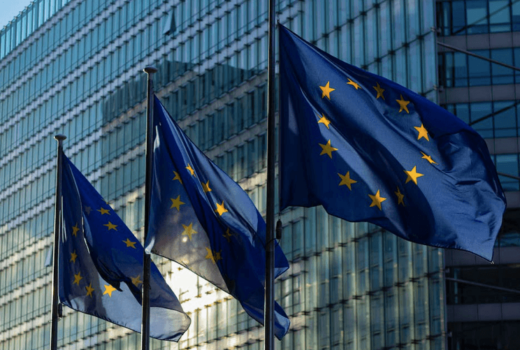EU investeert extra in kennis
Galileo, the 30-satellite navigation system designed to rival the US global positioning system (GPS), will receive an extra €2.4 billion than originally planned. Some €1.6 billion will come from unspent farm subsidies, which would otherwise have headed back to national capitals.
Germany, as the biggest contributor to the EU budget, had strongly opposed this scenario fearing it would set a precedent for not giving unspent farm money back to national capitals, despite a declaration that it is to be an “exceptional measure. It’s a question of budget discipline,” the country’s spokesman said, explaining Germany’s decision to vote against the deal.
The plan to kickstart the satellite system with an extra financial injection from public money was proposed by the European Commission in June, after a private consortium of companies failed to agree on the details of their investment in the initial phase of its construction. The finance ministers gave the green light to an extra €309 million from various existing budgetary chapters to enable EIT to start organising the first three technology projects in its portfolio during 2008.
Mr Barroso warmly welcomed Friday’s budgetary deal as proof of the bloc’s orientation towards growth and jobs, maintaining that the two projects “will foster innovation, technological progress and competitiveness across the whole EU. This is a budget for a Europe of results,” Mr Barroso added. Meanwhile, budget commissioner Dalia Grybauskaite repeated throughout the negotiations that the 2008 budget is “historic” as it puts aside more money for economic goals than for the common agriculture policy.
In een exclusief interview met ScienceGuide gaf Barroso in februari al aan, dat hij niet zou opgeven in zijn strijd voor het verleggen van het accent in de Europese investeringen van landbouw en ‘oude economie’ naar kennis:“We gaan van ‘bruine’ economie en techniek, van kolen en olie, naar een ‘brains’ economie. De economie van Europa transformeert zich naar het ‘Europa van de kennis’. Maar dat is nog maar het begin. Het EIT is een nieuwe vorm van wat we samen kunnen. Ik zie dit als een ‘framework’ van netwerken dat oude grenzen in de opzet van samenwerking kan helpen overwinnen. Laten we toch het beste, het sterkste dat we aan onderzoek in Europa hebben daarin samenbrengen! Heel concreet: ik zou willen dat we op het thema van het klimaat en de toekomst van de energieproductie en het verbruik van energie zoiets gaan doen. Een EIT zou daar voor dé start kunnen bieden, want dit is typisch een thema dat geen van de landen van de Unie op zijn eentje nog kan aanpakken of oplossen.”
Meest Gelezen
Wederom intimidatie van journalisten door universiteit, nu in Delft
‘Burgerschapsonderwijs moet ook verplicht worden in hbo en wo’
Raad van State: laat taaltoets nog niet gelden voor hbo-opleidingen
Vrouwen houden universiteit draaiende, maar krijgen daarvoor geen waardering
Extra geld voor bètafaculteiten is daar nooit terechtgekomen

